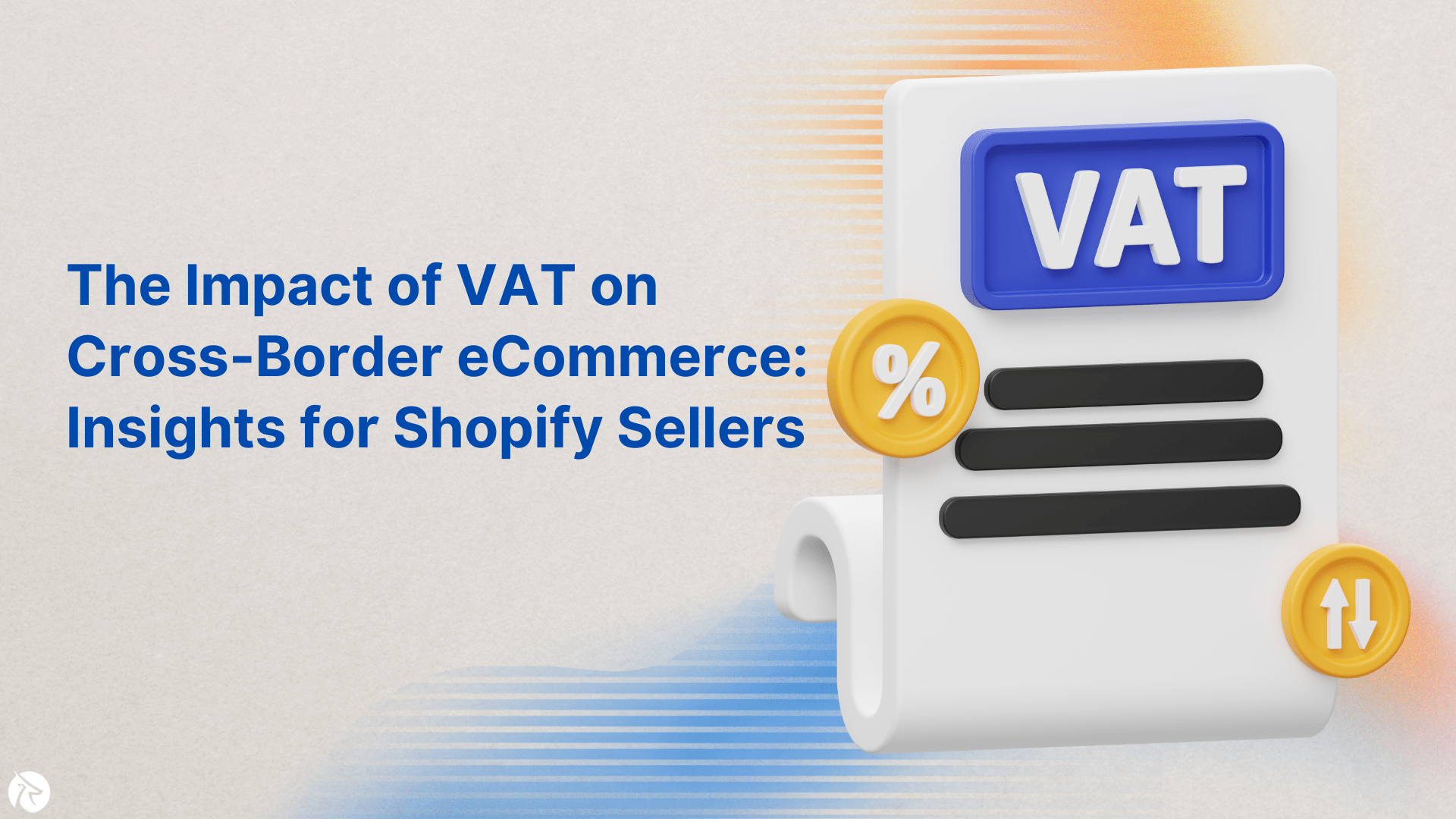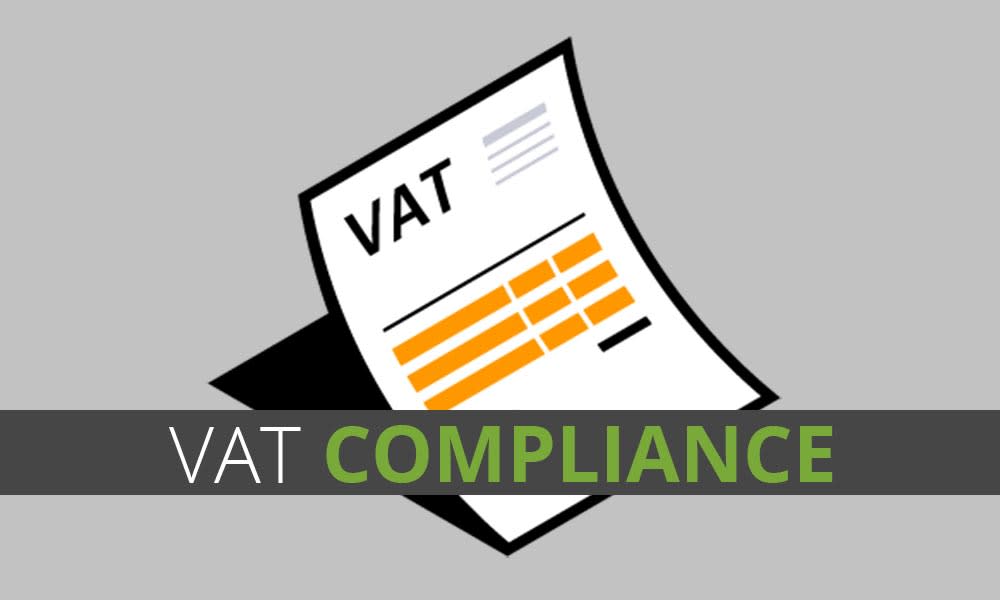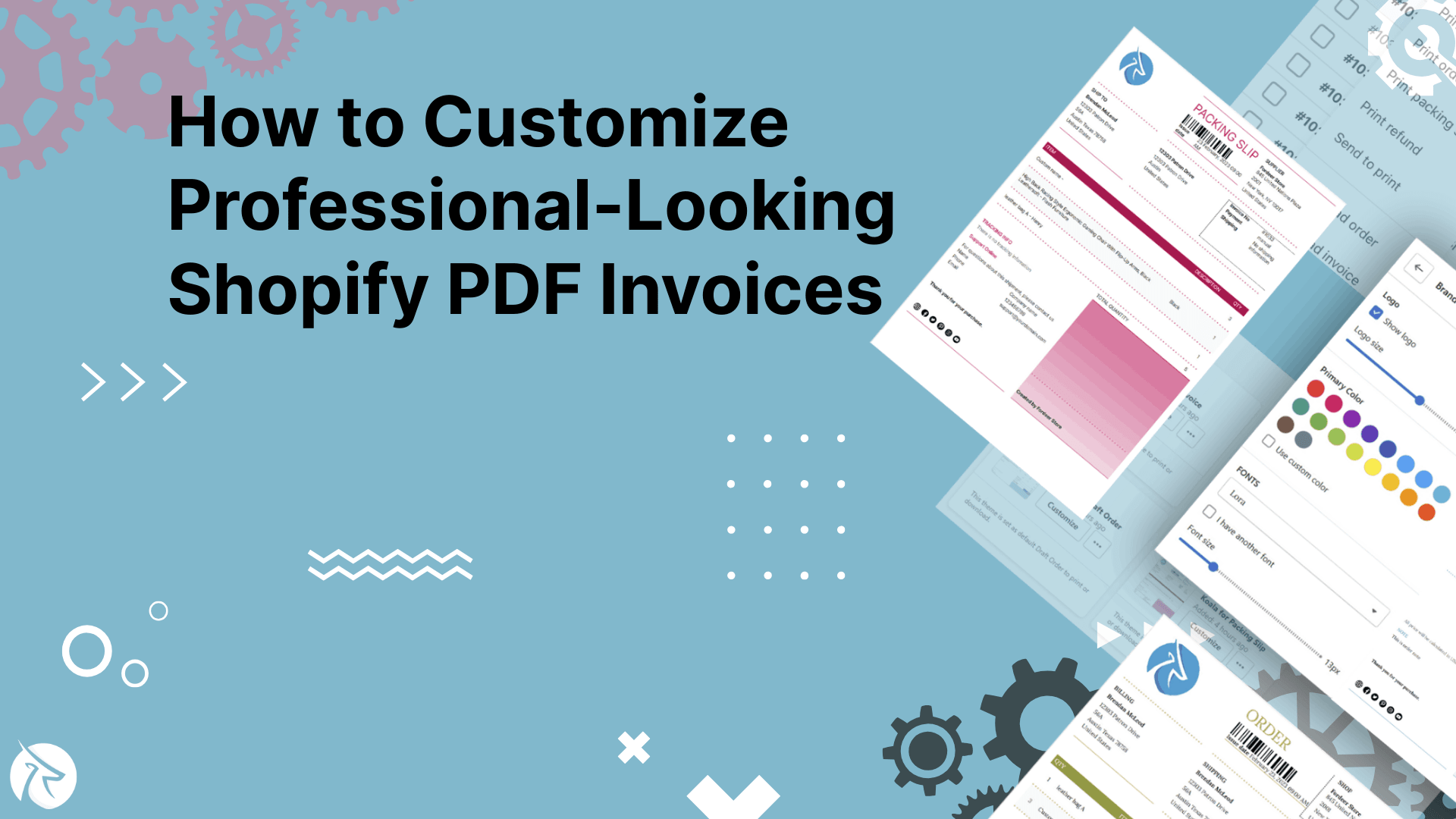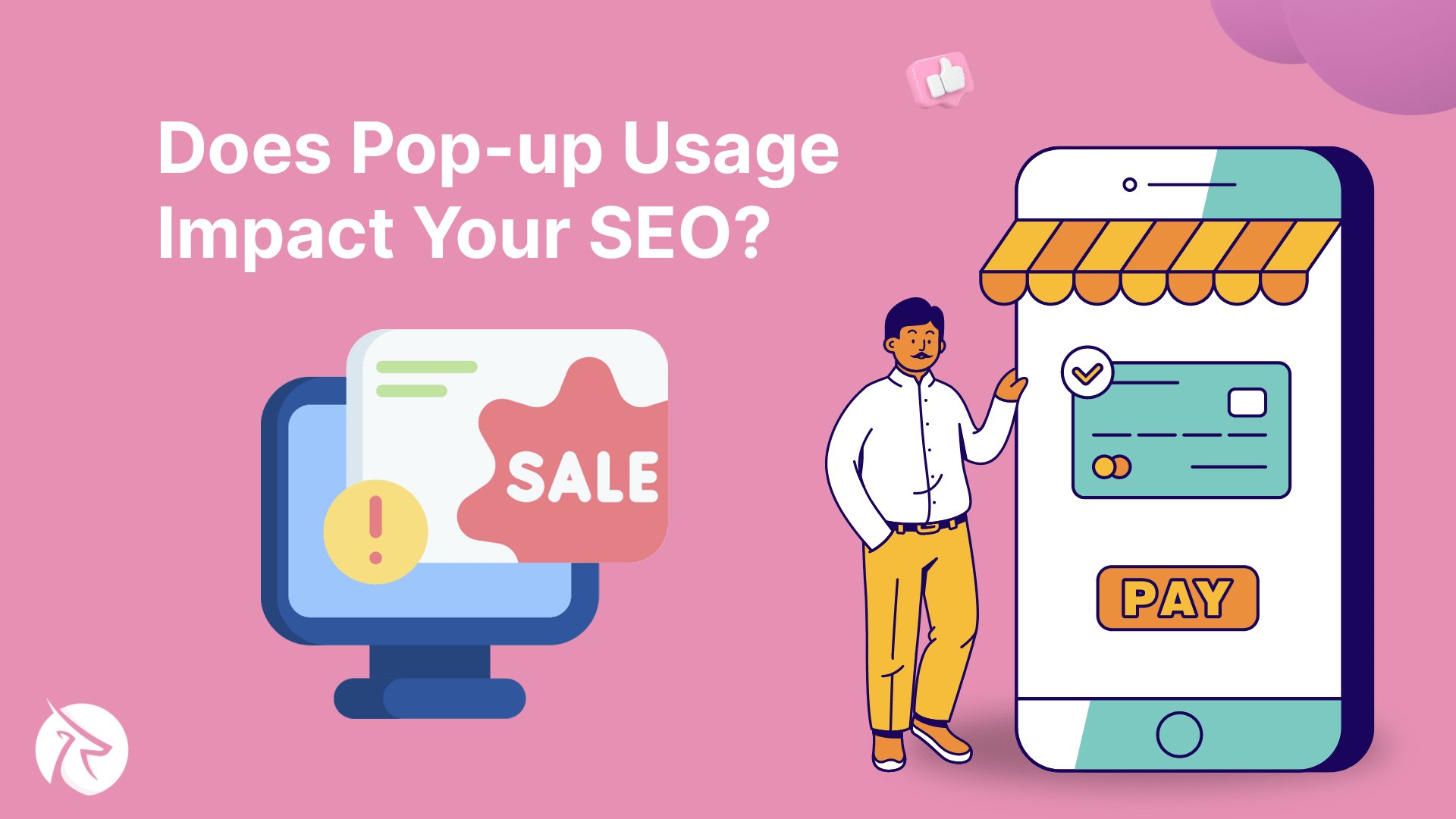The Impact of VAT on Cross-Border eCommerce: Insights for Shopify Sellers

Shopify has emerged as a powerhouse, empowering entrepreneurs to establish and grow their online businesses. However, as Shopify sellers expand their reach across borders, they encounter a crucial aspect that can significantly impact their operations – Value Added Tax (VAT).
In this blog post, Fordeer team will delve into the intricacies of VAT and explore its impact on cross-border eCommerce for Shopify sellers.
Understanding VAT in Cross-Border eCommerce
Basics of VAT
VAT, which is short for Value Added Tax, is a consumption tax on goods and services that is levied at each stage of the supply chain where value is added, from initial production to the point of sale. Unlike traditional sales tax, which is applied only at the point of sale to the final consumer, VAT is imposed at every stage of the production and distribution chain, including manufacturing, wholesale, and retail.
Now, let’s dive deeper into how VAT typically works. First, in the production stage, manufacturers or producers pay VAT on the raw materials they purchase. Then they add value to these materials during the production process.

In the wholesale stage, wholesalers pay VAT on the price they pay for the products from manufacturers. They add value by distributing products to retailers. Lastly, at the retail stage, retailers pay VAT on the wholesale price of the products. The final consumer pays VAT on the retail price of the product.
More importantly, businesses can usually reclaim the VAT they’ve paid on their inputs, so the tax is ultimately borne by the end consumer. VAT is widely used around the world and is a significant source of revenue for the government. Different countries have different VAT rates, and there can be variations in how VAT is administered and applied across borders, making it an important consideration for businesses engaged in international trade.
Import VAT
Import VAT refers to a tax imposed on goods bought in one country and imported into another. Specifically, within the European Union, import VAT pertains to the tax paid on goods procured from any non-EU country and subsequently imported into the union’s territory.
The minimum VAT rate established within the EU is 15%, but individual member countries have the autonomy to determine their rates. In Germany, for example, the customs authorities oversee the administration and imposition of taxes, with imported goods being subject to the EUSt.
VAT compliance
VAT compliance refers to the adherence to the rules, regulations, and obligations set by tax authorities concerning Value Added Tax (VAT). It involves ensuring that businesses accurately calculate, report, and remit the correct amount of VAT to the relevant tax authorities promptly.

For international eCommerce businesses, VAT compliance may involve additional complexities related to cross-border transactions, import VAT, and compliance with the regulations of different countries. Utilizing technology, such as VAT automation tools, can assist businesses in maintaining VAT compliance more efficiently.
Challenges of VAT in Cross-Border faced by Shopify sellers
Navigating the world of cross-border eCommerce is like embarking on an exciting global adventure. Shopify merchants have to face a lot of challenges about VAT along the way. Let’s now explore.
Cost consideration
Navigating the realm of cross-border eCommerce introduces unique challenges, and one crucial factor that warrants careful consideration is the impact of Value Added Tax (VAT). This not only shapes the financial landscape but also influences the competitiveness of Shopify sellers on a global scale. Let's explore how the presence of VAT can influence costs and pricing strategies for these online entrepreneurs.
In the cross-border eCommerce landscape, the manifestation of VAT impact takes the shape of increased costs for Shopify sellers. As they venture into new markets, understanding and incorporating VAT rates into their pricing strategies become imperative. The challenge lies in finding the delicate balance between maintaining competitiveness in the global market and ensuring sustained profitability.
When establishing product prices, Shopify sellers must factor in the diverse VAT rates applicable in different regions. This ensures that the final cost to consumers reflects not only the product value but also the associated VAT, complying with local regulations. Striking this balance is paramount for success in the global marketplace, where consumers are sensitive to transparent pricing structures.

Competing globally involves more than just offering attractive products; it demands a strategic approach to pricing that considers the intricacies of VAT. Sellers on the Shopify platform need to stay vigilant about the ever-changing VAT landscape and adapt their pricing models accordingly. This adaptability not only fosters compliance but also demonstrates a commitment to providing a seamless shopping experience for customers worldwide.
In the friendly yet formal pursuit of thriving in cross-border eCommerce, Shopify sellers are encouraged to view VAT not merely as a challenge but as an opportunity to refine their pricing strategies. As they embark on this journey, staying informed, adapting proactively, and embracing the nuances of VAT will undoubtedly contribute to their long-term success.
Operational challenges
In this intricate world of cross-border trade, the importance of staying on top of VAT regulations cannot be overstated. Think of it as equipping yourself with the right tools for a thrilling adventure. Sellers are not merely observers but active participants in a dynamic environment where regulations can evolve.
Investing time in understanding the intricacies of VAT regulations is an investment in the longevity and success of your eCommerce venture. It's akin to acquiring the skills needed to surf the waves rather than being overwhelmed by them. By staying informed, sellers empower themselves to make informed decisions and anticipate adjustments needed for seamless compliance.

Moreover, the proactive approach of implementing necessary adjustments to eCommerce processes is akin to fine-tuning your vehicle for a cross-country road trip. It ensures that your business engine runs smoothly, adapting to the unique requirements of each destination. This adaptability is not just a compliance necessity but a strategic move to enhance efficiency and customer satisfaction.
So, as you embark on your international eCommerce journey, consider staying not only compliant but also agile. Think of each regulatory update as an opportunity to refine your strategies, much like a seasoned traveler fine-tuning their itinerary for an ever-evolving adventure. The road to global eCommerce success is undoubtedly challenging, but with a friendly yet formal approach, you can turn these challenges into stepping stones for growth.
Customer experience
Ensuring a positive customer experience is paramount in the world of eCommerce, and VAT-related charges play a significant role in shaping this experience. It's not just about the financial aspect; it's about transparency and trust in your interactions with customers.
To enhance customer satisfaction, it is imperative to adopt a friendly and open communication strategy regarding VAT. By clearly communicating VAT-inclusive prices, you empower your customers with the information they need to make informed purchasing decisions. This transparency builds trust and eliminates any potential confusion during the checkout process.
Moreover, you may explore incorporating user-friendly features in your eCommerce platform, such as tools that provide estimated tax calculations during the checkout process. This proactive approach keeps customers well-informed, reducing the likelihood of post-purchase surprises.
By prioritizing transparency in your dealings with VAT-related charges, you not only comply with regulatory requirements but also create a customer-centric environment. In the end, a satisfied customer is more likely to become a repeat customer, contributing to the long-term success of your Shopify business.
Insights of VAT on cross-border eCommerce for Shopify sellers
Utilize VAT automation tools
Shopify sellers have the opportunity to enhance their operational efficiency and ensure seamless VAT compliance by harnessing the power of automation tools. These sophisticated tools not only streamline the intricate process of VAT calculations but also contribute significantly to maintaining a compliant and customer-friendly eCommerce environment.
These tools are designed to accurately determine the applicable VAT based on the specific location of the customer. By automating this crucial aspect, sellers not only reduce the risk of errors but also expedite the selling process, ensuring a smoother and more streamlined experience for both sellers and customers alike.

In the realm of eCommerce, where speed and precision are paramount, leveraging automation tools becomes a strategic advantage. The implementation of such tools aligns seamlessly with the commitment to excellence that Shopify sellers strive for in their business operations. The result is a more efficient and reliable approach to VAT compliance, freeing up valuable time and resources that sellers can redirect towards other aspects of business growth and customer satisfaction.
Furthermore, the integration of automation tools goes beyond mere compliance – it becomes a testament to a seller's commitment to providing a user-friendly and transparent shopping experience. Customers appreciate the accuracy and efficiency of transactions facilitated by these tools, fostering trust and loyalty.
Stay informed and seek professional advice
Staying abreast of changes is crucial for Shopify sellers to maintain a compliant and thriving business. The regulatory landscape, especially concerning VAT, is continually evolving, necessitating a proactive and informed approach.
To navigate these changes effectively, Shopify sellers should cultivate a commitment to staying informed about updates in VAT regulations. This commitment goes beyond a mere obligation; it is an investment in the sustainability and success of your eCommerce venture.
Seeking professional advice becomes paramount in this ever-changing environment. Consider engaging with seasoned tax experts who specialize in the intricacies of international tax compliance. Their expertise can provide invaluable insights tailored to your specific business needs, ensuring not only compliance but also optimized financial strategies.
Furthermore, exploring dedicated services that specialize in international tax compliance can be a strategic move. These services often leverage cutting-edge technology and industry knowledge to streamline compliance processes, allowing Shopify sellers to focus on what they do best – growing their business.
Transparent communication
In fostering a positive and customer-centric environment, it is paramount to proactively communicate VAT-related information to our valued customers. Our commitment to transparency and clarity not only aligns with best practices but also ensures that our customers feel informed and confident in their purchasing decisions.

One key aspect of this commitment involves prominently displaying VAT-inclusive prices. By presenting the total cost of products, inclusive of VAT, at the forefront, we empower our customers to make well-informed choices. This straightforward approach eliminates ambiguity and promotes a sense of trust throughout the shopping experience.
Recognizing that tax-related matters can sometimes be intricate, right? With Fordeer PDF Invoice Generator, we extend our support to customers seeking clarification. Our dedicated customer support team is readily available to address queries related to VAT, ensuring that customers receive the assistance they need to navigate any complexities confidently.
In conclusion,
In the expanding realm of cross-border eCommerce, understanding and navigating the impact of VAT is crucial for Shopify sellers. By staying informed, utilizing automation tools, and maintaining transparent communication with customers, sellers can not only ensure compliance but also enhance their global competitiveness and foster positive customer relationships.
For more invaluable information, stay updated with Fordeer Team!
- Install Fordeer Apps for Free
- Get immediate assistance by chatting with us.
- Join Fordeer Commerce Community for fresh app updates, expert tips, and private deals.











